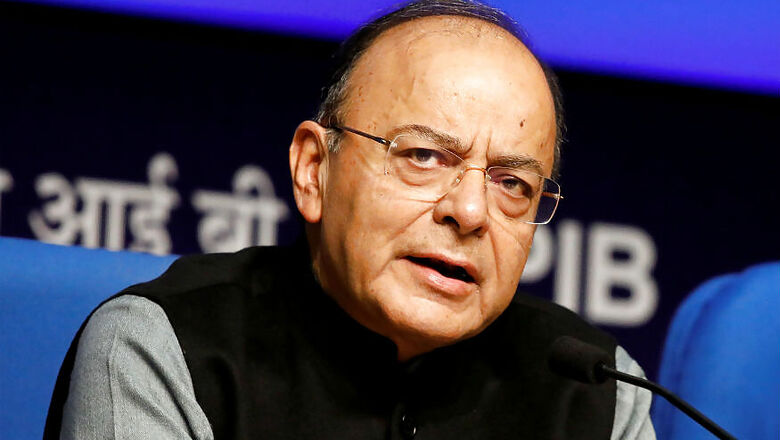
views
New Delhi: The GST Council on Friday decided to roll out in six months a new, simpler process of filing monthly returns, as it deferred a decision on imposing a sugar cess and allowing an incentive for digital payments.
In its 27th meeting, the Council also decided to take complete ownership of the Goods and Services Tax Network (GSTN) by acquiring the equity share held by non-government institutions.
However, deferring the decision on the imposition of a cess on sugar as well as a two per cent incentive for making payments digitally, the panel decided to set up two separate groups of five finance ministers of states to give recommendations on both issues.
After the meeting, Finance Minister Arun Jaitley said the new simplified return filing process approved by the Council will require all taxpayers, barring composition dealers and those with "nil transaction", to file only one GST return every month.
For composition dealers and dealers having "nil transaction", only one return will have to be filed every quarter.
The new system would be put in place within the next six months and another six months would be given to the taxpayers to make the complete transition, Jaitley said.
The facility of provisional input tax credit will be withdrawn only after the new system is completely implemented, which is expected to take around one year. After it comes fully into force, the input credit will be auto-generated for the buyers based on invoices uploaded by the sellers.
Apart from that, the return form will also be simplified by reducing the information required to be filled in, the government said.
What makes the new process much simpler is that unlike the system proposed earlier, the buyer will not have to upload any invoice and can simply view the invoices uploaded by the seller and confirm them.
"So there will only be unidirectional flow of invoices unlike the to-and-fro movement in the earlier system. And there will be no need for invoice matching as input credit will be given only on invoices uploaded by seller and confirmed by the buyer," Finance Secretary Hasmukh Adhia told reporters.
The GST Council also discussed the proposal to impose a cess on sugar over and above the five per cent GST considering the sugarcane farmers were in distress with the cost of producing sugar being significantly higher than its market price.
Jaitley said the Council had decided to set up a group of five ministers within two days to make a recommendation on ways to meet such contingencies where the cost of a commodity is higher than its selling price.
The committee will submit its report within two weeks keeping in view the urgency of the matter, Jaitley said.
"The committee will examine how these contingencies are to be addressed by the GST regime. Its constitution will be announced in the next two days," he said.
It was also decided to constitute in two days a separate group of five ministers from states to recommend a two per cent concession, subject to a ceiling of Rs 100 per transaction, to consumers if they pay through digital modes. This report will be submitted before the next GST Council meeting.
The GST Council also discussed the change in ownership structure of GSTN and decided that the government will take complete control by acquiring the 51 per cent equity of Rs 5.1 crore held by non-government institutions.
The 51 per cent equity will be acquired collectively by both Central and state governments following which they will hold 50-50 share in the private limited, not-for-profit company created to provide shared IT infrastructure and services for implementation of GST.
GSTN is handling large-scale invoice level data of lakhs of business entities including data relating to exports and imports.
"Considering the nature of 'state' function performed by GSTN, the Council felt that GSTN be converted into fully-owned government company," an official statement said.
Presently, the Central government holds 24.5 per cent equity shares while the state governments collectively hold another 24.5 per cent. The remaining 51 per cent are held by non-government institutions.

















Comments
0 comment